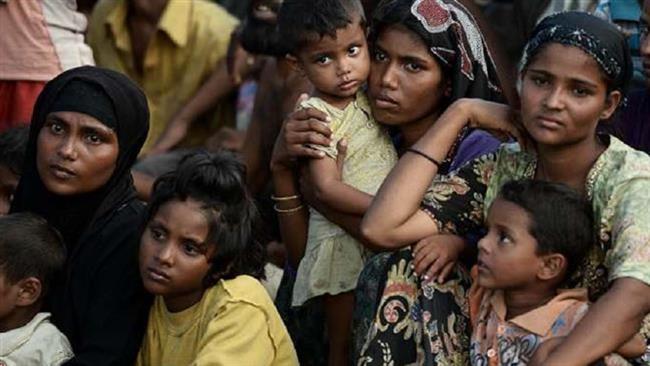
RNA - Bangladeshi authorities on Friday prevented the refugees, crammed into seven wooden boats, from ducking on the Bangladeshi side of the Naf River, which separates Bangladesh's southeastern border from western Myanmar, said Nafiur Rahman, a local coast guard official, on Saturday.
“They included 61 women and 36 children. We resisted them from entering our water territory,” he said, adding that all of them had been nationals of Myanmar, escaping an uptick of violent clashes in neighboring Myanmar's Rakhine state.
Rakhine, home to a large number of Rohingya Muslims, has been under a military lockdown since an alleged attack on the country’s border guards on October 9 left nine police officers dead. The government accused the Rohingya of being behind the assault.
Since then, Bangladesh has heavily boosted security measures in a strip of land along its border with Myanmar and deployed hundreds of troops to patrol the area in a bid to push back the potential waves of Rohingya Muslim refugees, who flee the resurgence of violence and persecution back home.
Myanmar’s western state of Rakhine has also been the scene of communal violence at the hands of Buddhist extremists since 2012. Hundreds of people have been killed and tens of thousands have been forced from homes and live in squalid camps in dire conditions in Myanmar, Thailand, Malaysia and Indonesia.
On November 16, the London-based Arakan Rohingya National Organization said at least 150 Muslims had been killed since November 12.
Myanmar's government denies full citizenship to the 1.1 million-strong Rohingya population, branding them illegal immigrants from Bangladesh. However, many believe the Rohingya are a community of ancient lineage in Myanmar.
According to the UN, the Rohingya are one of the most persecuted minorities in the world.
847/940